Filter by
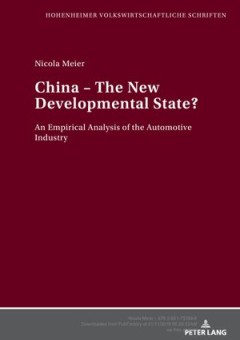
China – The New Developmental State ?
The central focus of this analysis is whether the economic growth of China can be attributed to an emulation of the development models of Japan, South Korea, and Taiwan. Based on the developmental state theory, an East Asian developmental state model is set up as a benchmark. The thesis uses an empirical analysis of the auto industry to highlight the performance outcome of China’s development…
- Edition
- -
- ISBN/ISSN
- 9783631582848
- Collation
- -
- Series Title
- -
- Call Number
- 650
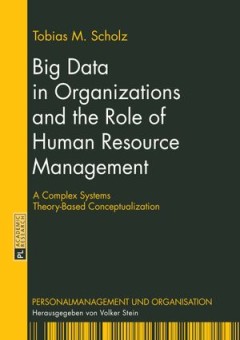
Big Data in Organizations and the Role of Human Resource Management
Big data are changing the way we work. This book conveys a theoretical understanding of big data and the related interactions on a socio-technological level as well as on the organizational level. Big data challenge the human resource department to take a new role. An organization’s new competitive advantage is its employees augmented by big data.
- Edition
- -
- ISBN/ISSN
- 9783631718902
- Collation
- -
- Series Title
- -
- Call Number
- 650
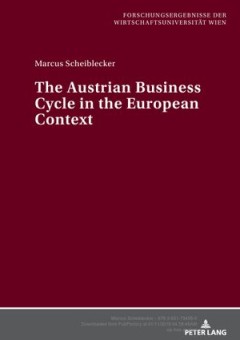
The Austrian Business Cycle in the European Context
Dating business cycle turning points is still an important task for economic policy decisions. This study does this for the Austrian economy for the period between 1976 and 2005, using only quarterly national accounts data of Austria, Germany and the euro area. Three different filtering methods are applied: first-order differences, the Hodrick-Prescott filter, and the Baxter-King filter. To all…
- Edition
- -
- ISBN/ISSN
- 9783631576076
- Collation
- -
- Series Title
- -
- Call Number
- 650
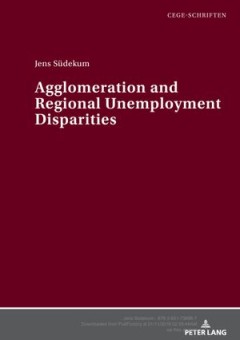
Agglomeration and Regional Unemployment Disparities
In the European Union, unemployment rates differ markedly across regions, both within and across nations. This study presents a coherent theoretical approach to explain the emergence and persistence of such regional unemployment disparities. The analysis builds on the wage curve literature, and on regional agglomeration theories like the new economic geography. These theoretical strings are com…
- Edition
- -
- ISBN/ISSN
- 9783631517451
- Collation
- -
- Series Title
- -
- Call Number
- 650
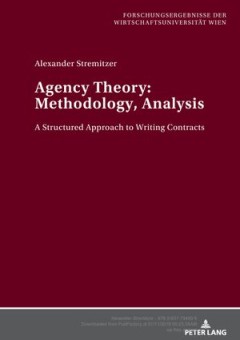
Agency Theory : Methodology, Analysis
Designing a contract is often more of an economic than a legal problem. A good contract protects parties against opportunistic behavior while providing motivation to cooperate. This is where economics and, especially contract theory, may prove helpful by enhancing our understanding of incentive issues. The purpose of this book is to provide specific tools which will help to write better contrac…
- Edition
- -
- ISBN/ISSN
- 9783631529737
- Collation
- -
- Series Title
- -
- Call Number
- 650
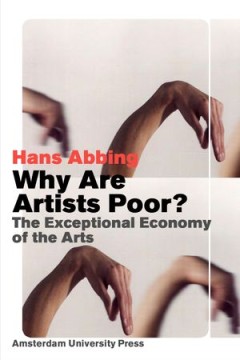
Why Are Artists Poor : The Exceptional Economy of the Arts
Most artists earn very little. Nevertheless, there is no shortage of aspiring young artists. Do they give to the arts willingly or unknowingly? Governments and other institutions also give to the arts, to raise the low incomes. But their support is ineffective: subsidies only increase the artists' poverty. The economy of the arts is exceptional. Although the arts operate successfully in the mar…
- Edition
- -
- ISBN/ISSN
- 9789053565650
- Collation
- -
- Series Title
- -
- Call Number
- 650
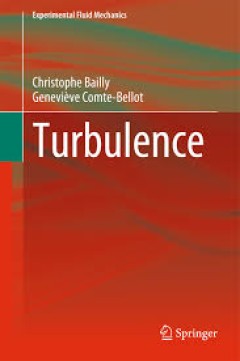
Turbulence : a Corporate Perspective On Collaborating For Resilience
The ever tighter coupling of our food, water and energy systems, in the context of a changing climate is leading to increasing turbulence in the world. As a consequence, it becomes ever more crucial to develop cities, regions, and economies with resilience in mind. Because of their global reach, substantial resources, and information-driven leadership structures, multinational corporations can …
- Edition
- -
- ISBN/ISSN
- 9789089647122
- Collation
- -
- Series Title
- -
- Call Number
- 650
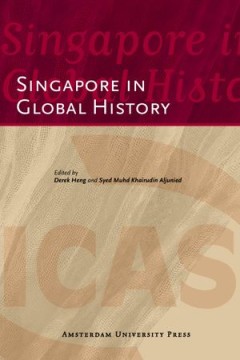
Singapore in Global History
This important overview explores the connections between Singapore's past with historical developments worldwide until present day. The contributors analyse Singapore as a city-state seeking to provide an interdisciplinary perspective to the study of the global dimensions contributing to Singapore's growth. The book's global perspective demonstrates that many of the discussions of Singapore as …
- Edition
- -
- ISBN/ISSN
- 9789089643247
- Collation
- -
- Series Title
- -
- Call Number
- 650
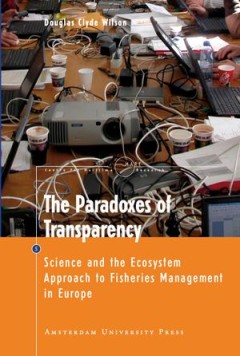
The Paradoxes of Transparency : Science and the Ecosystem Approach to Fisheri…
The International Council for the Exploration of the Sea (ICES) is the central scientific network within the massive set of bureaucracies that is responsible for Europe's Common Fisheries Policy (CFP). While spending the past 25 years failing to sustain Europe's fish stocks, this management system also became adept at making the lives of its scientists miserable. Now it is being confronted by t…
- Edition
- -
- ISBN/ISSN
- 9789089640604
- Collation
- -
- Series Title
- -
- Call Number
- 650
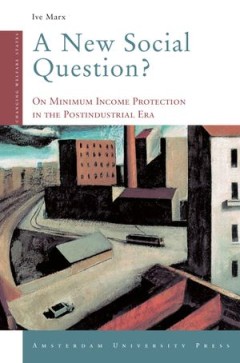
A New Social Question?
Advanced welfare states are said to be facing, in the words of Pierre Rosanvallon, a "New Social Question". The idea here, and it is a widely shared one, is that the transition from an industrial to a postindustrial environment has brought with it a whole new set of social risks, constraints and trade-offs which necessitate radical recalibration of social security systems. This book analyses in…
- Edition
- -
- ISBN/ISSN
- 9789053569252
- Collation
- -
- Series Title
- -
- Call Number
- 650
 Computer Science, Information & General Works
Computer Science, Information & General Works  Philosophy & Psychology
Philosophy & Psychology  Religion
Religion  Social Sciences
Social Sciences  Language
Language  Pure Science
Pure Science  Applied Sciences
Applied Sciences  Art & Recreation
Art & Recreation  Literature
Literature  History & Geography
History & Geography